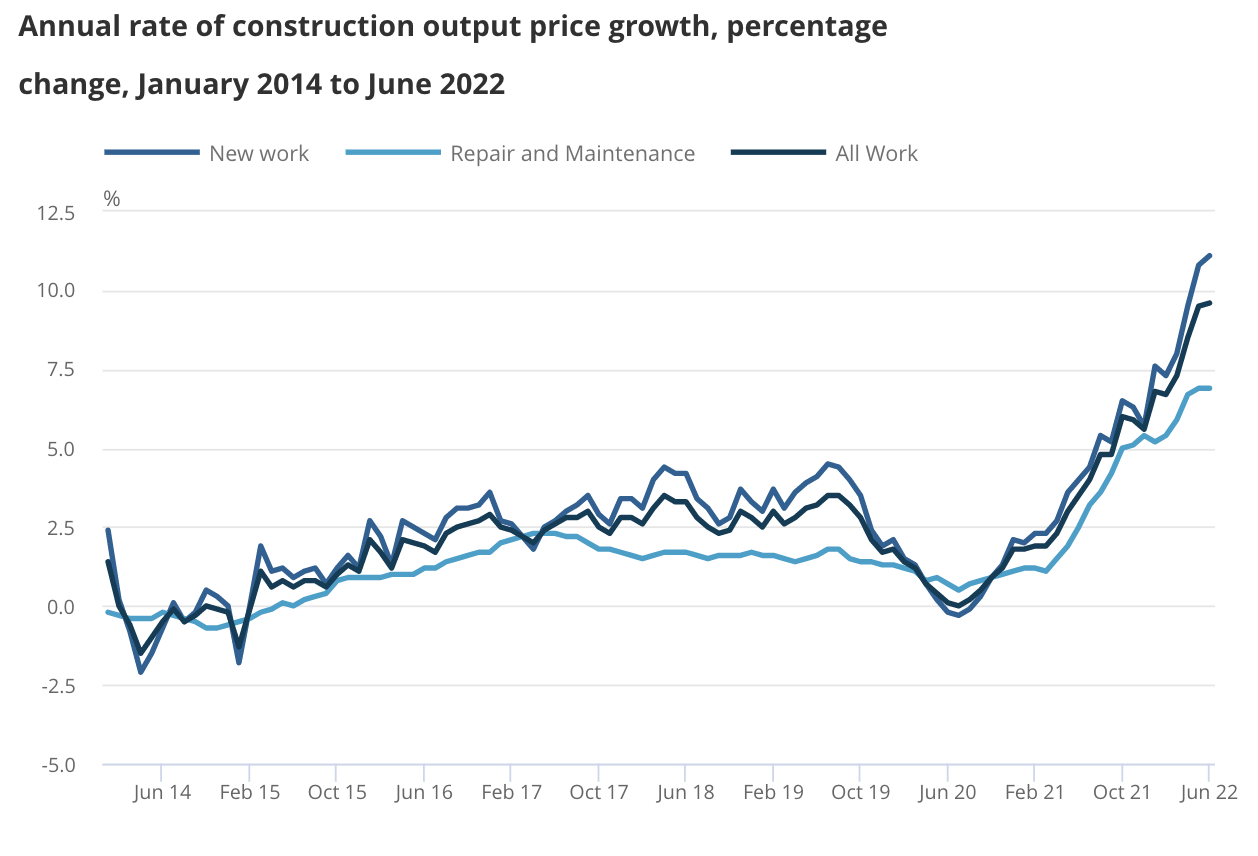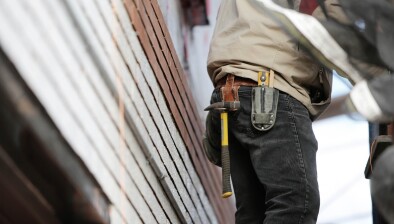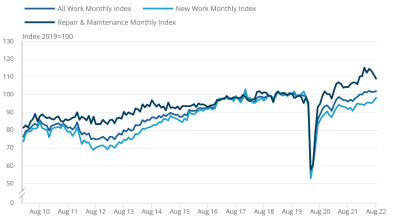Construction activity falls after seven consecutive months of growth

Data courtesy of the Office for National Statistics
The Federation of Master Builders (FMB) has lamented new figures from the Office for National Statistics (ONS) today which revealed a 1.4% decrease in monthly construction output in June 2022.
The fall, which follows an upwardly revised 1.8% increase in May, with both months affected by the timing of the Jubilee bank holiday, is the first decrease since October 2021 (0.9%) following seven consecutive months of growth.
The decrease in monthly construction output in June 2022 came from falls in both new work (2.0%) and repair and maintenance (0.2%).
At the sector level, the main contributors to the decrease in June 2022 were private new housing and private commercial new work, which decreased 6.1% and 4.5%, respectively.
The level of construction output in June 2022 was 2.9% (£414 million) above the February 2020 pre-coronavirus pandemic level; repair and maintenance work was 12.6% (£626m) above the February 2020 level while new work was 2.2% (£212m) below its February 2020 level.
Despite the monthly decrease, construction output increased 2.3% in Quarter 2 (Apr to June) 2022, with increases seen in both new work and repair and maintenance (3.3% and 0.8%, respectively).
Total construction new orders decreased 10.4% (£1,355m) in Quarter 2 2022 compared with Quarter 1 (Jan to Mar) 2022; this is the largest quarterly fall in construction new orders since Quarter 4 (Oct to Dec) 2020 (11.7%).
The annual rate of construction output price growth was 9.6% in the 12 months to June 2022; this was the strongest annual rate of price growth since records began in 2014.
FMB said the fall in construction activity is a growing concern for small builders given the wider fall of 6.1% for private new housing and the continuing fall of 0.2% for repair, maintenance and improvement (RMI) work.
Brian Berry, chief executive, said: “Costs are up across the board for both builders and consumers alike which is affecting business confidence. With 98% of FMB members experiencing material cost increases builders are inevitably having to pass on these costs to consumers. The result is that householders are starting to hold back with many households increasingly concerned about rising energy prices and the threat of a recession later in the year.
“With the Government at a standstill, we won’t see any ambitious announcements to help support the sector until September with the new Prime Minister will be announced. In the meantime, the Conservative leadership candidates need to be explaining what they intend to do help the construction sector boost economic growth. Cutting the rate of VAT from 20% to 5% or below on all repair, maintenance, and improvement work would be a welcome start to help boost building work all across the country and help people insulate their homes ahead of further rising energy bills.”
Mark Robinson, group chief executive at public sector procurement authority SCAPE, added: “Following seven consecutive months of increases in output, the decrease in June comes at a time when the sector is used to hitting its stride.
“This data will only add to contractors’ worries over what’s to come, given the Bank of England’s recent warnings of an extended recession. Other figures have also indicated a contraction in the market, and firms need to be alive to these warnings and plan ahead to maintain confidence.
“In any absence of new work, contractors will need to work closely with clients to forecast pinches in material and labour supply, and maintain ongoing dialogue around rising costs.”
Meanwhile, the ONS admitted that estimates for June 2022 were subject to more uncertainty than usual as a result of the challenges it has faced with the data collection in the current climate. This has led to lower response rates than normally experienced before the pandemic.

















